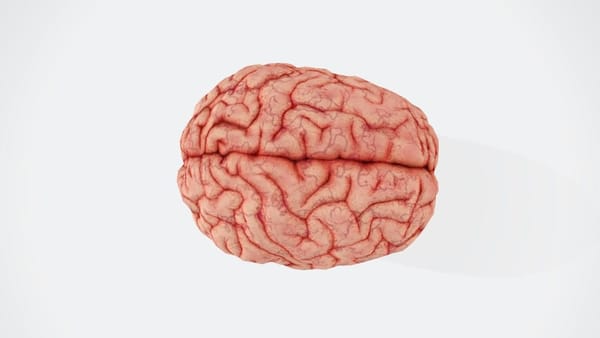Energy healing has gained popularity in recent years as people seek holistic approaches to wellness that address both physical and mental health. These ancient practices aim to restore balance to the body's energy systems, promoting healing and overall wellbeing. Let's explore some effective energy healing techniques that can benefit both mind and body.
Key takeaways:
• Energy healing techniques work to balance the body's subtle energy systems
• Many practices combine physical, mental, and spiritual elements
• Popular methods include Reiki, acupuncture, qigong, and meditation
• Research suggests potential benefits for pain, stress, and mood disorders
• Energy healing can complement conventional medical treatments
Reiki: Channeling universal life force energy
Reiki is a Japanese technique that involves the practitioner placing their hands lightly on or above the body to channel healing energy[1]. The word "Reiki" combines "rei" (universal) and "ki" (life energy). Practitioners believe this universal energy flows through all living things and can be directed to promote physical and emotional healing.
During a Reiki session, recipients often report feeling warmth, tingling, or deep relaxation. While more research is needed, some studies suggest Reiki may help reduce pain, anxiety, and fatigue in certain populations[2].
Acupuncture: Balancing the body's energy pathways
Acupuncture is a key component of traditional Chinese medicine that involves inserting thin needles into specific points on the body. This practice aims to balance the flow of "qi" or life force energy through pathways called meridians[3].
Research indicates acupuncture may be effective for treating various conditions, including chronic pain, migraines, and nausea. It's also shown promise for addressing mental health concerns like anxiety and depression[4].
Qigong: Cultivating life energy through movement
Qigong is an ancient Chinese practice that combines gentle movements, breathing exercises, and meditation to cultivate and balance "qi" energy. Regular qigong practice is believed to enhance physical health, emotional wellbeing, and spiritual connection[5].
Studies suggest qigong may offer benefits for chronic pain, balance and flexibility, and stress reduction. Its meditative aspects may also support mental health and cognitive function[6].
Meditation and mindfulness: Harnessing the mind-body connection
While not always categorized as energy healing, meditation and mindfulness practices can profoundly impact our mental and physical energies. These techniques involve focusing attention and awareness to achieve a state of calm and clarity[7].
Research has shown meditation can reduce stress, anxiety, and depression while improving sleep quality and pain management. Regular practice may even lead to changes in brain structure and function associated with improved emotional regulation and cognitive performance[8].
Choosing the right energy healing technique
With numerous energy healing modalities available, it's essential to find an approach that resonates with you personally. Consider trying different techniques to see what feels most effective and enjoyable. Remember that energy healing is generally considered complementary to conventional medical care, not a replacement for it.
As interest in holistic health continues to grow, energy healing techniques offer promising avenues for supporting both mental and physical wellbeing. By tapping into the body's natural energy systems, these practices may help us achieve greater balance, resilience, and vitality in our daily lives.
References:
[1] National Center for Complementary and Integrative Health. Reiki: In Depth.
[2] Thrane S, Cohen SM. Effect of Reiki therapy on pain and anxiety in adults: an in-depth literature review of randomized trials with effect size calculations. Pain Manag Nurs. 2014;15(4):897-908.
[3] National Center for Complementary and Integrative Health. Acupuncture: In Depth.
[4] Armour M, et al. Acupuncture and acupressure for anxiety treatment: a systematic review and meta-analysis. Psychiatr Serv. 2019;70(4):322-329.
[5] Jahnke R, et al. A comprehensive review of health benefits of qigong and tai chi. Am J Health Promot. 2010;24(6):e1-e25.
[6] Wang CW, et al. Managing stress and anxiety through qigong exercise in healthy adults: a systematic review and meta-analysis of randomized controlled trials. BMC Complement Altern Med. 2014;14:8.
[7] National Center for Complementary and Integrative Health. Meditation: In Depth.
[8] Goyal M, et al. Meditation programs for psychological stress and well-being: a systematic review and meta-analysis. JAMA Intern Med. 2014;174(3):357-368.
Citations:
[1] https://spaexperiencesiestakey.com/energy-healing-exercies/
[2] https://www.ncbi.nlm.nih.gov/pmc/articles/PMC4654782/
[3] https://www.medicalnewstoday.com/articles/energy-therapy
[4] https://www.healingspacellc.com/energy-healing.html
[5] https://brahmas.co/blog/quotes-on-energy-healing/
[6] https://www.uclahealth.org/sites/default/files/documents/Integrative_Review_of_Reiki_Research.pdf
[7] https://www.sciencedirect.com/science/article/abs/pii/S1744388116300573












Member discussion